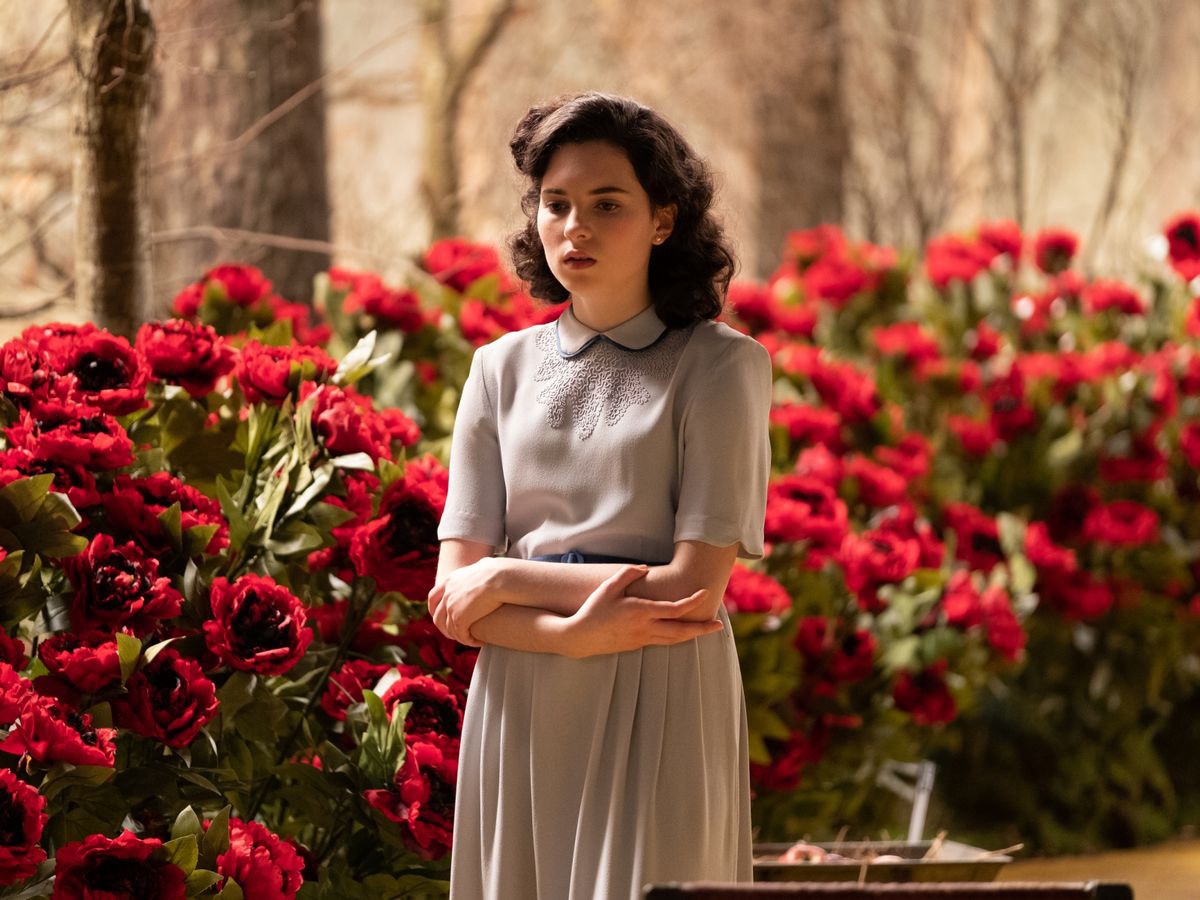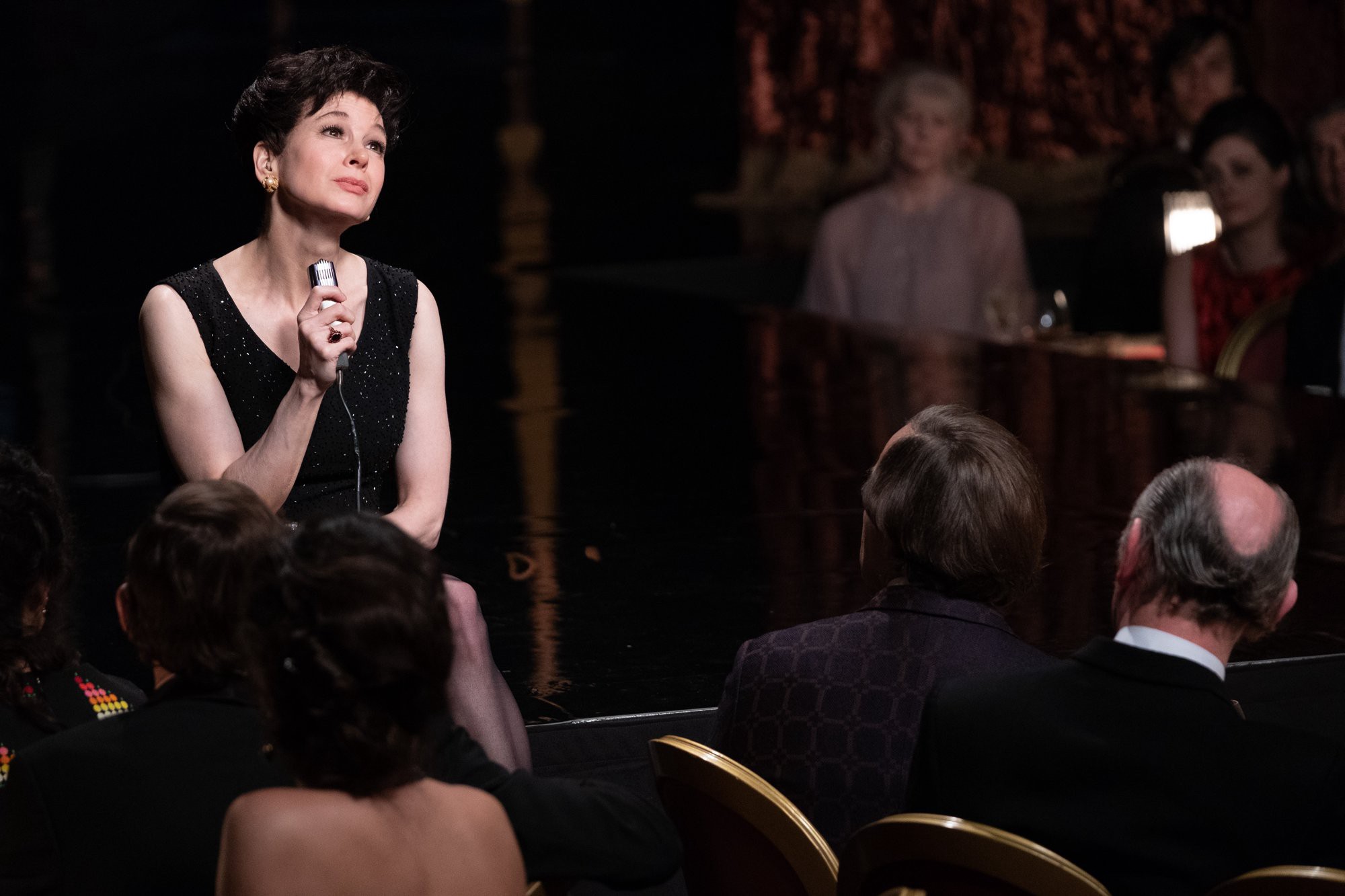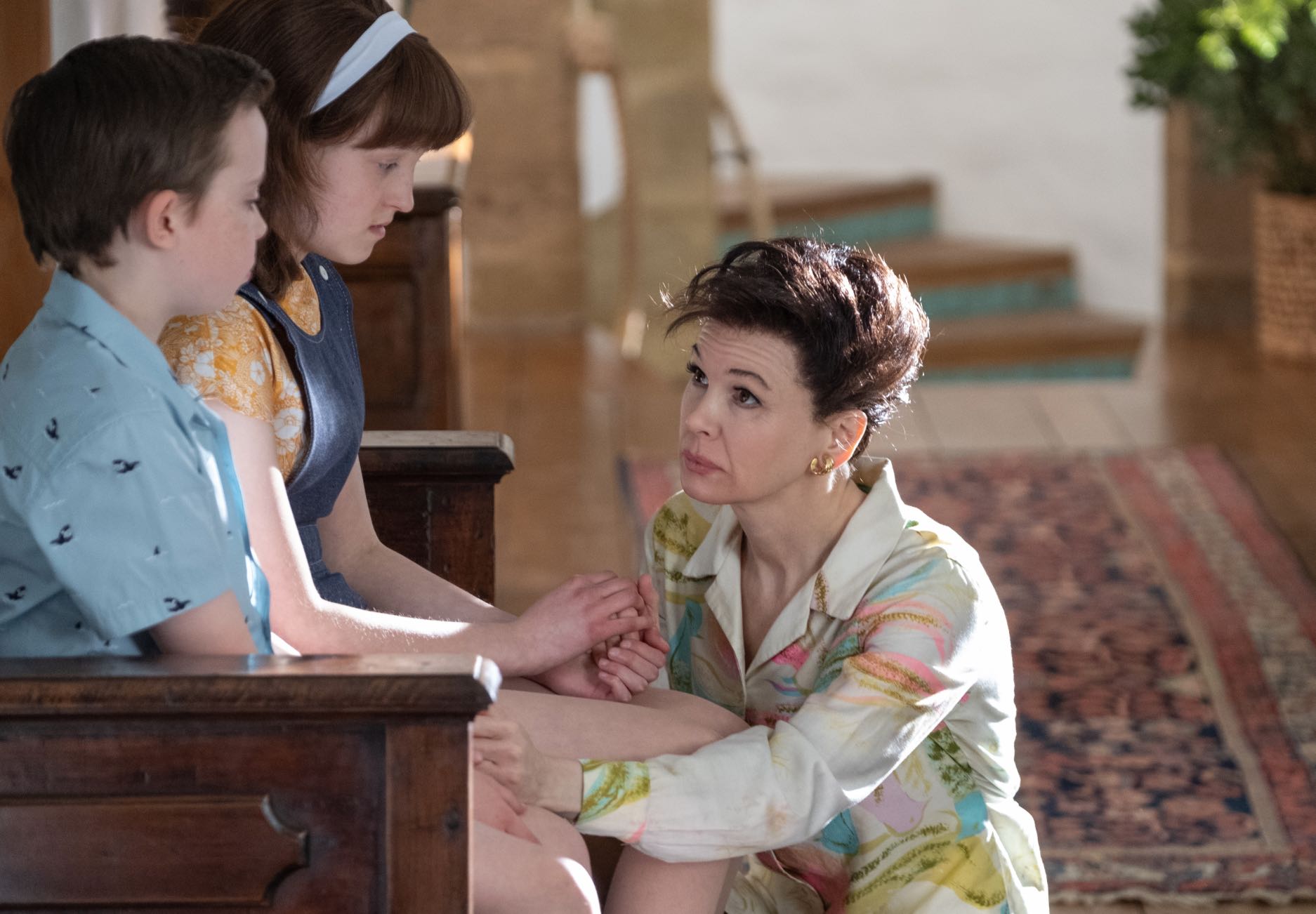A Tragic Antihero: Judy
Renee Zellweger shines in this Judy Garland biopic, which highlights the pain and loneliness that so many famous women endure.
Judy (2019)


(This review contains spoilers.)
Judy, the Judy Garland biopic starring Renee Zellweger, is the tragic story of the last year of Garland’s life. This film sets the viewers up immediately for what is ahead: tragedy. My question is, what exactly is the plot of this film? It is interesting to see Garland’s struggles and final days and to understand why this tragedy occurred, but nothing really happens in the film. Judy’s focus is almost solely London circa 1968. There are flashbacks throughout the film of her childhood, but these are used as context or explanation. We are not to focus on those years of her life.
Past
The film opens with a closeup of young Garland with the voice of MGM head Louis Mayer explaining to the viewer and Garland that the only currency is beauty, and she does not have it. Her only talent is her voice. She is replaceable — so she had better do whatever she is told. This old white man with all of the power is also sexualizing and harassing Garland in numerous flashbacks. She is living with constant abuse.

Not only that, Garland has no advocates. Everyone feeds her pills, starting when she was a teenager. This gives context for the addiction she carries into adulthood. Teenage Garland is slightly defiant when she eats the forbidden cheeseburger or jumps into a water tank when she is robbed of her requested one-hour birthday party. For the most part, however, Garland does what she is told. As an adult in 1968, she even tells the London club owner, “Whatever you’d like me to do.” She is sad and angry at the people running her life but does not know how to stand up for herself, or perhaps she is just too tired of fighting.
Cultural Object
When MGM dropped her, the media painted Garland as a troubled teenager. The press and her former studio turned on her with no concern for Garland. After creating staged relationships with other child stars like Mickey Rooney and throwing her birthday parties simply as a photo-op, they left her to disappear into the abyss of Hollywood. Even as an adult speaking on a talk show, Garland’s abusive, forced eating disorder is the source of humor. It was not a secret — it was industry standard.
The industry ruined her, as they do with too many female pop stars and child stars to mention. Fame destroys Garland. She is an other, an outsider — used and left for dead. This is the most common explanation for her relationship with some of the gay male community. Many assume the love for Garland by part of this population is because they relate to her struggle. She was not allowed to make her own decisions, to form her own identity, or to have any kind of happiness because she needed to fit the harsh mold of Hollywood.

In Judy, Garland explains:
Everyone suggests things like I’m not a real person. But I am. I am only Judy Garland for an hour a night. The rest of the time I am part of a family. I want what everybody wants… I just seem to have a hard time getting it.
This is the most heartbreaking monologue in Judy. She is aware of what has become of her. She knows what she wants, but she is simply unable to have it. Frances Gumm is lost and the hollow Judy Garland is all that remains.
Mother (x3) and Wife (x5)
In Judy, Garland’s main goal is to be a good mother to her two youngest children, but she either can’t or doesn’t know how. You can hear the pain in her voice at all times, whether she is singing or speaking. The viewer sees that she doesn’t even know her own authentic self. Throughout this film, I never felt like I knew Garland, but that’s because she doesn’t know herself either. Even her laughter seems inauthentic. Yet she tries to fill the void with husbands, constantly seeking love and approval from the wrong people. She gets hurt over and over again.

Zellweger’s performance is outstanding. Thankfully, Judy is not a caricature of Judy Garland. She is more than a former star and more than an addict. Garland is not entirely sympathetic, but we understand where her bad decisions come from. She becomes addicted to the applause, which is all she has left. After a bit of turmoil, Garland does the only thing she knows how to do, the only way she feels any connection or love: she sings onstage.
The most authentic relationship in Judy is between Garland and Dan and Stan, a gay couple she befriends at her London shows. Garland needs this love. She is maternal towards her upset fans and can empathize with their struggle. She sees a glimpse of what she is to other people, to these strangers who use her performances to escape their struggles. Dan and Stan could be a compilation of her LGBT fanbase, as a nod to the relationship between Garland and the “friends of Dorothy.” This relationship is very briefly presented, but the only mutual one in her life. They need each other.
Conclusion
There is no release to the palpable awkwardness and anxiety that pervades Judy. Even the final song, “Somewhere over the Rainbow,” which she introduces with a hopeful message, is torturous to watch. Not that it is poorly executed, it is just so incredibly sad. Garland’s last line in Judy is “You won’t forget me will you? Promise you won’t,” while she is onstage for her last performance. This audience and their memory of her as a star are all she has left.
The film leaves us with this quote from the Wizard of Oz: “A heart is not judged by how much you love, but by how much you are loved by others.” This quote is poignant and relevant to the story, but also troubling. She loved her children immensely but did not love herself. Garland seemed to come to terms with the fact that she is unlovable. Sure, her audience showered her with love in the last performance, but that is not enough for any person. That love is fleeting. While Garland is still a pop culture icon, fame (or infamy) was not enough to save her.

Incluvie Score: Female struggle represented; LGBTQ struggle briefly referenced; No people of color other than service workers or back-up musicians
General Score: Interesting and well executed film; Great performance by Zellweger
(This article was originally published by Sarah Erskine on Medium.)
More to explore
By Same Author
Related lists created by the same author
By Cluvie Type
Related diversity category
'Fair Play'(2023) and Feminine Rage
This thrilling film about feminine rage and male hostility is an incredible depiction of the fragility of the male ego.
By General Category
Related Movie / TV / List / Topic
'PAW Patrol: The Mighty Movie' (2023)
This theatrical sequel based on the PAW Patrol series features voice actors of color in this action-packed adventure.





